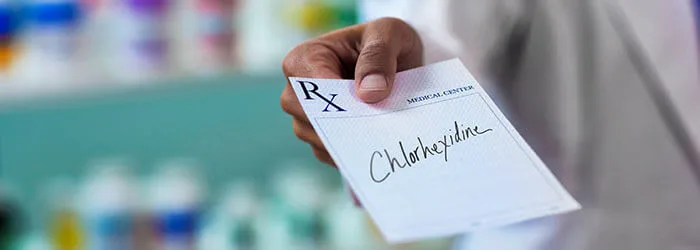What Is Chlorhexidine Mouthwash?
If you're being treated for gum disease or having certain dental procedures performed, your dental professional may prescribe a prescription rinse with antibacterial properties called a chlorhexidine mouthwash. This rinse helps to control and kill the bacteria in your mouth that cause gum disease.
On the positive side, chlorhexidine has powerful antibacterial properties, and can be especially helpful in maintaining a healthy mouth after a teeth deep-cleaning procedure such as tooth scaling and root planing.
Chlorhexidine Side Effects
However, chlorhexidine mouthwash can cause brown stains on teeth, because chlorhexidine has been shown to bind to both hard and soft tissues. So if your dental professional prescribes a chlorhexidine wash for a short time while you're recovering from gum disease treatment, try not to drink too much coffee, tea, red wine, or consume any foods that may be likely stain your teeth. Also, chlorhexidine mouthwashes may not be the best choice if you have tooth crowns or caps made of composite or glass ionomer, as these materials may stain.
Mouthwash Does Not Replace Brushing and Flossing
In general, it's not necessary to make a chlorhexidine mouthwash a long-term part of your oral care routine, and even a prescription mouth rinse does not replace tooth brushing and flossing. Once your gum disease is under control, following a regular program of dental hygiene that includes twice-daily tooth brushing, daily flossing and regular visits to your dental professional should help to prevent further problems with gum disease.

Sign Up
for expert advice and exclusive offers









